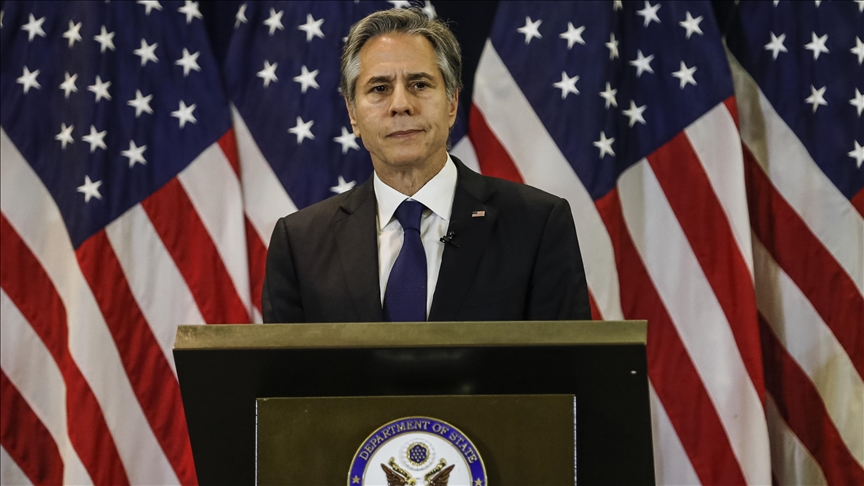Top US diplomat urges 'direct dialogue' in calls with Azerbaijani, Armenian leaders
Blinken 'urged direct dialogue between Armenia and Azerbaijan to resolve issues' related to Karabakh region: State Department

WASHINGTON
US Secretary of State Antony Blinken on Friday called for Armenia and Azerbaijan to engage in "direct dialogue" as he spoke with the Caucasus nations' leaders amid heightened tensions.
Speaking with Azerbaijani President Ilham Aliyev by phone, Blinken "called for de-escalation" and repeated the appeal for "direct dialogue" to resolve issues related to the Karabakh region, State Department spokesman Ned Price said in a statement, referring to a region largely liberated in fall 2020 from nearly 30 years of Armenian occupation.
Blinken also assured Armenian Prime Minister Nikol Pashinyan “that the United States is watching the situation in and around Nagorno-Karabakh closely," said Price in a separate readout of the call.
"He urged direct dialogue between Armenia and Azerbaijan to resolve issues related to, or resulting from,” the Karabakh conflict, Price added.
Azerbaijan said it launched a retaliatory operation on Wednesday against Armenian forces in the Karabakh region after Armenia opened fire and killed an Azerbaijani soldier, according to its Defense Ministry.
Armenia has accused Azerbaijan of violating the fall 2020 agreement that ended the 44-day Karabakh War, with Azerbaijan dismissing the charge as "nothing but mere hypocrisy."
Azerbaijan has decried Armenia’s failure to fulfill the provisions of the agreement, particularly how Armenian armed forces have not yet fully pulled out of Azerbaijani territories.
Relations between the former Soviet republics have been tense since 1991 when the Armenian military occupied Nagorno-Karabakh (Upper Karabakh), a territory internationally recognized as part of Azerbaijan, and seven adjacent regions.
After new clashes during the fall of 2020, Azerbaijan liberated several cities and over 300 settlements and villages occupied by Armenia for almost 30 years.
The fighting ended in November 2020 with a Russia-brokered deal.








